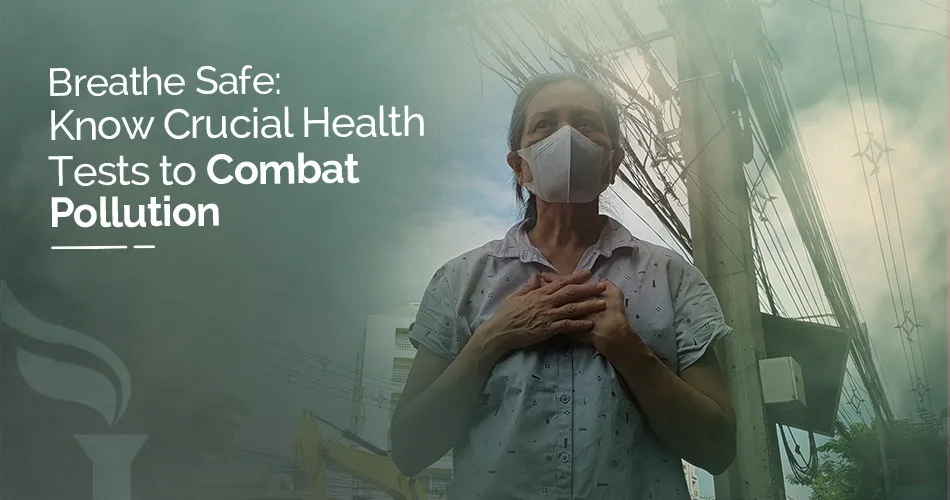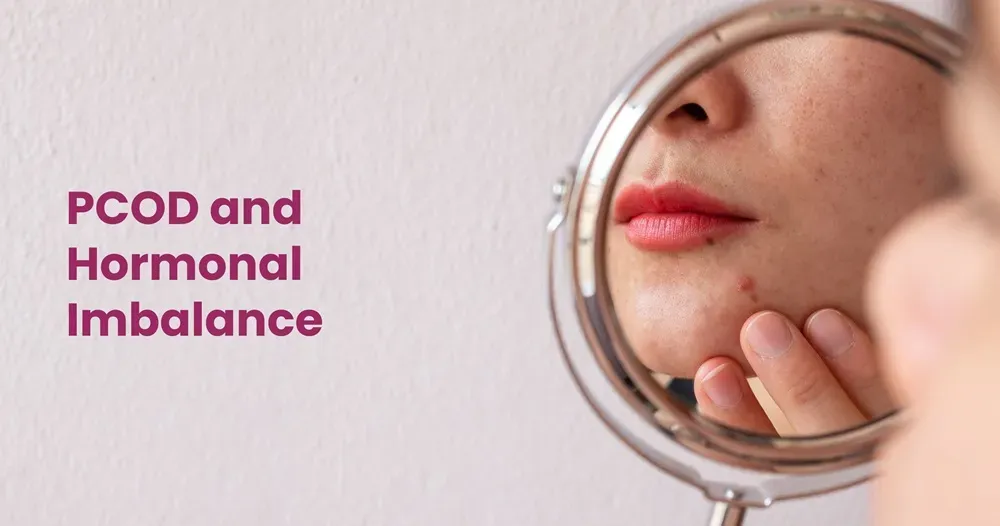Unmasking the Threat: Understanding Effects of Pollution on Health & Essential Tests
Dec 12, 2023

Pollution has become an ever-present concern in an era distinguished by technological developments and urbanisation. Pollution is a serious hazard to human health in addition to its evident environmental impact. Inhaling polluted air exposes us to harmful particles, triggering respiratory issues like asthma. Beyond the visible, pollution seeps into our daily lives, impacting our health. Understanding its effects is crucial for fostering a cleaner environment and healthier lives.
This blog investigates the serious health consequences of pollution on human health and recommends critical tests to determine their influence.
Effects of pollution on health
Respiratory Problems:
Air pollution, which is typically packed with particulate matter and toxic chemicals, is a major factor in respiratory difficulties. Prolonged exposure to dirty air has been linked to conditions such as asthma, chronic bronchitis, and even lung cancer. Spirometry tests can be useful in determining respiratory health by monitoring lung function.
Cardiovascular Diseases:
Long-term air pollution exposure has been linked to an elevated risk of cardiovascular disease. Particulate matter and contaminants can enter the bloodstream and cause hypertension, heart attacks, and other cardiovascular issues. For early detection, regular blood pressure monitoring and lipid profile tests are required.
Skin Ailments:
Environmental contaminants can cause premature ageing, allergies, and a variety of skin problems. Dermatological evaluations, such as allergy tests and skin inspections, can aid in determining the influence of pollution on skin health.
skin health.
Pollution and neurological illnesses:
Recent research suggests a link between pollution and neurological illnesses. Fine particulate matter has the ability to reach the brain and contribute to cognitive impairment and an elevated risk of neurodegenerative disorders. Monitoring brain health requires neurological evaluations and cognitive function tests.
Cancer Risk:
Pollution, particularly from industrial sources, has been linked to an increased risk of some malignancies. Regular screenings such as mammograms, Pap smears, and prostate-specific antigen (PSA) testing are critical for the early detection of cancer.
Kidney and heart problems:
Toxins in the environment can strain the liver and kidneys, impairing their function over time. Liver function tests (LFTs) and kidney Function tests (KFTs) can help monitor and detect early indicators of failure in these essential organs.
Recommended tests for pollution
Allergy Comprehensive Panel Test
If one is allergic to immediate environmental changes, an allergy comprehensive panel test is recommended. Allergies triggered by airborne diseases are pollen allergies, which lead to wheezing, a swollen face, hives, rashes, and itchy skin.
Spirometry Test
A spirometry test measures the amount and speed of air inhaled by the lungs. It helps in diagnosing respiratory diseases such as asthma, COPD, and other disorders that are caused by polluted air particles.
AspergillusFumigatus Allergy Test
Aspergillus fumigatus is one of the air pollutants that can cause severe infections like asthma, influenza, and brown mucus. This test involves a standard blood test and focuses on the levels of IgE antibodies.
Conclusion:
As the world grapples with increasing pollution levels, prioritising our health becomes paramount. Regular medical check-ups and specific tests tailored to assess the impact of pollution on various bodily systems are essential for early detection and preventive measures.
By making you stay informed and proactive, we, at Apollo Diagnostics, do our best for you by analysing the adverse effects of pollution on your health through accurate results.
Related Blog Post
Blog Categories
- Child Health
- Mens Health
- Women's Health
- Mental Health
- Health Myths & Facts
- Fitness
- Nutrition/Recipes
- Remedies
- Weight Management
- Stress Management
- Health Supplements
- Addiction Management
- Disease Management
- Allergy
- Anemia
- Arthritis
- Asthma
- Autoimmune Diseases
- Blood Pressure
- Cancer
- Deficiencies
- Dengue/Malaria/Chikungunya
- Diabetes
- Eye Problems
- Heart Diseases
- Hepatitis
- HIV/AIDS/STD
- Hormonal Imbalance
- Infection/Flu/Viral
- Kidney
- Liver
- Menstrual Problems
- Pregnancy
- Skin & Hair Problems
- Stomach Ailments
- Thyroid
- Others
- Health Checkups
- Diagnostics/Pathology
- Lifestyle & Wellness
- Covid
- Medical Tests
- Cholesterol
- Health Tips
- Parent Care/Old Age
- Lungs
- Food Intolerance








